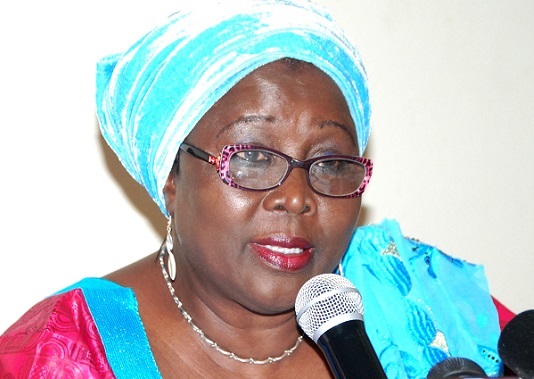Hajia Alima Mahama- Local Government Minister
The Local Government Minister and her staff are busy sensitizing Ghanaians to the December referendum — a departure from the current mode of appointing heads of municipalities and districts by the President.
Yesterday, she and other appointees discussed the subject with media persons as part of the education which subjects of this nature require to achieve their objectives.
A ‘yes’ vote to make the positions of MMDCEs electable will be one of the greatest developments to happen to our body politic.
There are many persons who even as we are left with barely three months to go for the referendum do not know what it is all about, let alone its importance and relevance. That is why for us what the ministry has set out to do is good for the enrichment of the democratic process and above all governance on the doorstep of the people.
Considering the fact that a large voter turnout will determine the President’s dream of allowing Ghanaians to make a choice for their district chief executives as he cedes some of his powers; we as Ghanaians must come out and vote when the date is due. Not being able to go that far because many Ghanaians decide not to come out and vote should not come our way at all.
Presidents hardly cede their powers voluntarily and so Nana Akufo-Addo’s gesture not only brings out another element of the man but also how much he understands and appreciates the subject.
We have observed also the Information Ministry’s involvement in the educational programme as evidenced from what ensued a few days ago in Bolgatanga. The task of educating the people about the subject under review is of utmost importance.
As for the President, he has done his part; it now behoves Ghanaians to come out and vote massively for the subject to be put to rest.
A ‘yes’ vote would ensure that development at the local government level is carried out to the benefit of the people because the heads of such districts will no longer see the President as their godfather to whom they report but the people who voted them into office.
We think that radio stations countrywide and their newspaper counterparts can as their corporate social responsibilities provide free airtime and space respectively for the publicisation of the subject under review.
It is only when the people especially the rural dwellers understand what is at stake and turn out in their numbers to vote in the affirmative that the Universal Adult Suffrage will come to stay.
It would be an unbearable pain when the idea of reversing the current mode as championed by the President is not achieved by the simple and avoidable fact of many people not showing interest in the subject.


